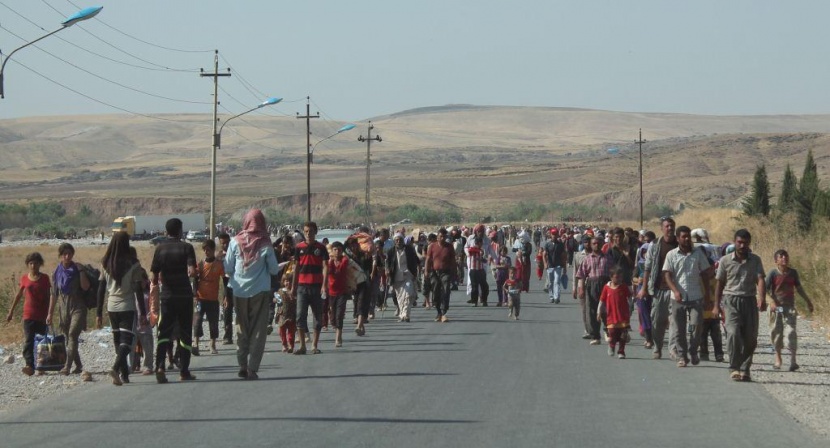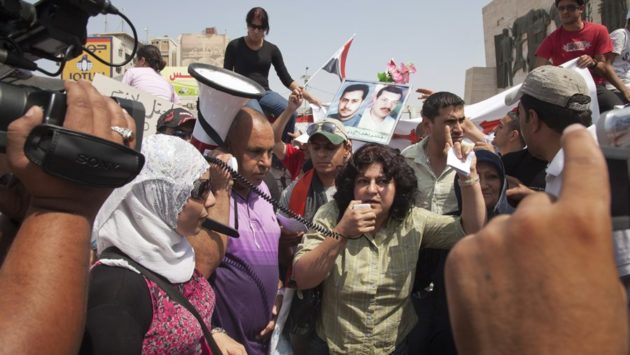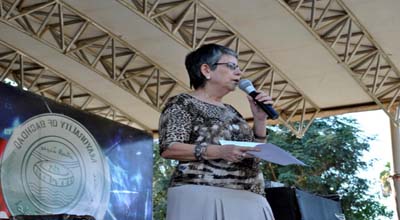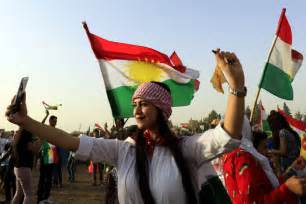Choosing to Return? Prospects for Durable Solutions in Iraq
OXFAM Executive Summary – December 2015
Nearly ten months since the earliest reports of returnees in parts of the country, a humanitarian crisis of significant proportions remains. Whilst more than 415,000 individuals have returned to their place of origin since conflict has subsided, approximately 3.2 million Iraqis are displaced inside Iraq, with more expected to face displacement in 2016.1 Both groups remain in need of enhanced humanitarian assistance and protection.
Oxfam has been working to provide humanitarian assistance to individuals and communities affected by the crisis, including those who have returned home and require assistance to rebuild their lives and those who remain in protracted displacement. Recognising the need to listen to and understand the concerns of those affected by the crisis, an intention study was carried out to better shape the humanitarian response of all actors in Iraq.
Between August and November 2015, over 55 interviews and 25 focus groups were carried out with returnees and displaced people in 15 communities in Diyala governorate of Iraq, including two camps. Oxfam gathered information on immediate humanitarian needs, perceptions of se-curity and prospects for the future. These were supplemented by secondary research and inter-views with humanitarian actors. Women and men were interviewed, as well as relevant security forces and government authorities.
The results present a picture of a country still struggling to manage a humanitarian response to ongoing displacement and overcome the effects of the conflict, and one which will require sus-tained support to achieve durable solutions. This report highlights that:
– Security is the primary factor influencing returnee intention, yet government pressure has motivated displaced Iraqis to return irrespective of this. Heightened intercommunity tensions, activity of armed groups and fear of reprisal are not conducive to ensuring
returns are sustainable. Social tensions are also contributing to further displacement.
– Beyond security, the three major factors influencing people’s willingness to return are restoration of basic services in their place of origin, support for recovery and accurate
information on the conditions of security. The return of civil authorities, availability of
humanitarian assistance and the reinforcement of security patrols were also mentioned.
– A small percentage of displaced persons expressed their intention not to return to their place of origin because of the destruction of their home, insecurity, the trauma they
endured or land disputes. They had little or no idea of alternatives available to them.
– Significant humanitarian needs remain in both areas of return and of displacement.
Livelihoods have been seriously disrupted as some families have entirely lost their source of revenue and face many challenges to restoring assets and rebuilding.
– Shelter is also a great need. An estimated 60% of both public structures and private properties have been destroyed and others are at risk of collapse in some areas.2
Serious gaps in provision of education, healthcare and water were all also highlighted in both displacement and return areas.
Returns do not fully adhere to the principles of free and informed decision. The absence of choice compels families to follow directives from local authorities despite the lack of guarantees to their safety or information about their entitlements and rights.
– Displaced people and returnees continue to face significant protection threats due to on-going social tensions, racketeering at checkpoints, lack of access to basic services and continued acts of violence, harassment and intimidation by armed groups.
– There is no government action with regard to compensation and restitution of property, guarantees of land tenure rights or knowledge of security screening procedures or timeline. People seeking redress lack options as access to justice is also limited.
While this study cannot provide a comprehensive picture of all needs in central Iraq, nor represent all views from diverse communities, it is clear that despite improvements in security, the situation in Diyala is still highly precarious and unstable.
Consultations with displaced people and returnees between August and November reveal that conditions for durable returns are not currently met. Some returnees continue to suffer attacks, harassment and intimidation, upon return to their home, and many have limited or no access to basic services and protection mechanisms. Some returnees have lost their documentation and none currently have access to property restitution mechanisms or compensation for their losses, while many have also not been able to restart their livelihoods. Significant numbers of displaced people are still not ready to return due to insecurity.
The ultimate responsibility for the protection of displaced people and the promotion of durable solutions to their displacement rests with the Government of Iraq, although there are vital roles for UN agencies, donors and NGOs to play in supporting these efforts. Detailed recommendations are outlined later in this report, but include:
1- Ensure a responsible, sustainable displacement policy for those affected by conflict.
A national legal framework for durable solutions should be developed, which draws on the 2012 Comprehensive Plan to End Displacement. It should promote and protect the rights of displaced persons and ensure that all solutions are voluntary, safe, dignified and sustainable. Both better profiling of population flows and much greater information to displaced people will be needed in support of this. This framework must be led by the Government of Iraq and consult all relevant stakeholders including international organisations, civil society, UN and donor governments. The voices and needs of displaced persons must directly inform this process. Moreover, any strategy will need to consider the root causes of conflict, including weak governance, economic inequality and ongoing security concerns.
2- Re-establish of rule of law, support social cohesion and prevent further conflict.
Sustainable returns require a reduction in social tensions, security reform and effective systems of referral and redress. Resolving political disputes in the disputed internal boundaries (DIBs), the re-establishment of civil authorities, a process of disarmament, demobilization and
reinsertion, as well as better information about these efforts to affected populations are all re-quired to achieve this. Active efforts should be undertake for community-based reconciliation and social cohesion to restore trust within communities and facilitate collective recovery
post-conflict. In particular, the government must ensure that land issues are addressed and a comprehensive system of restitution and compensation established across all governorates.
3- Enhance humanitarian assistance and support livelihoods recovery.
Much greater support is needed for both IDPs and returnees, particularly in the DIBs, towards livelihoods recovery. Vulnerable displaced families are rapidly depleting productive assets in an attempt to meet household needs and are engaging in other corrosive coping strategies such as reducing meals or borrowing money. Markets have also been affected as productive areas have become battlefields, supply routes have been disrupted and physical infrastructure destroyed. Increased donor funding is required to meet the 2016 Iraq Humanitarian Response Plan, in which sustainable returns are a priority focus. Support must also target communities facing protracted displacement as poor conditions in displacement have been cited as a ‘push factor’ for return and a barrier to local integration.
NOTES
1 IOM Displacement Tracking Matrix, November 2015.
2 Rapid Protection Assessment report on Saadiya, 18 November 2015 (Danish Refugee Council).





